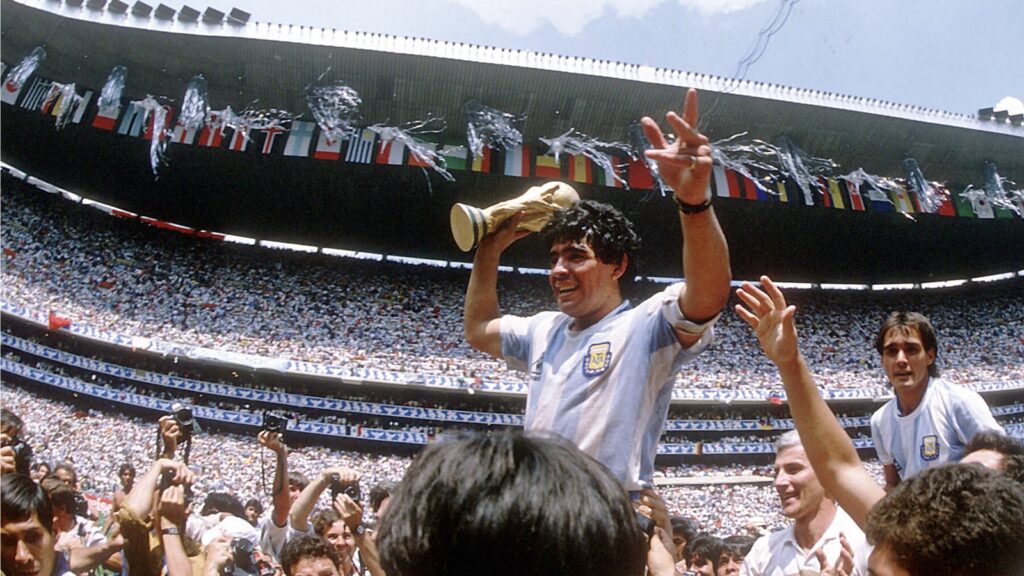One of the defining moments of football history has been the 1986 FIFA World Cup quarter-final clash between Argentina and England. Taking place on June 22, 1986, in Mexico City’s Estadio Azteca, the game arose more as a place for certain moments in a man’s life to take root rather than that of a mere contest between two national sides. Diego Maradona, already on his way to becoming a fully-fledged global icon, scored two goals that have forever been etched in history, with one side seen as a display of unadulterated brilliance and the other as an act dripping with infamy.
Those moments – the infamous “Hand of God” and the breathtaking “Goal of the Century” – bring about a dual legacy that has spawned countless debates over the past few decades. Maradona’s performance was not only instrumental in bringing home the trophy for Argentina but also served as a watershed moment in football history to raise uncomfortable questions about ethics, giftedness, and legacy.
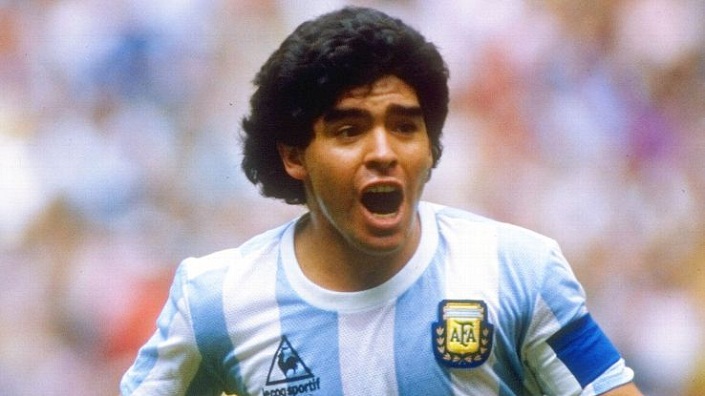
Setting Up the Scene
Political undertones permeated the quarter-finals in 1986. The Falklands War had been fought barely four years earlier between Argentina and the UK. While FIFA tries its level best to ensure that politics has not anything to do with sport, a rather good number from the two sides knew well about the emotions layering the fixture on that day.
Argentina had reached the quarter-final with a strong squad led by Maradona, their captain and playmaker. England, with stars like Gary Lineker and Peter Beardsley, was looking to reach its first semi-final since 1966. The world watched with anticipation, but no one expected the events that would unfold.
The “Hand of God”
In the 51st minute, with the score at 0-0, Maradona attempted to play a one-two pass with Jorge Valdano. England’s Steve Hodge inadvertently looped the ball high into his own box. Maradona, despite being just 5’5”, leapt above the 6’1” goalkeeper Peter Shilton and knocked the ball into the net.
Replays showed that Maradona had used his left hand, punching the ball over Shilton. But Tunisian referee Ali Bin Nasser and his linesmen did not see the handball and allowed the goal to stand. Maradona later said it was scored “a little with the head of Maradona and a little with the hand of God.”
The English players protested furiously, but the decision was final.
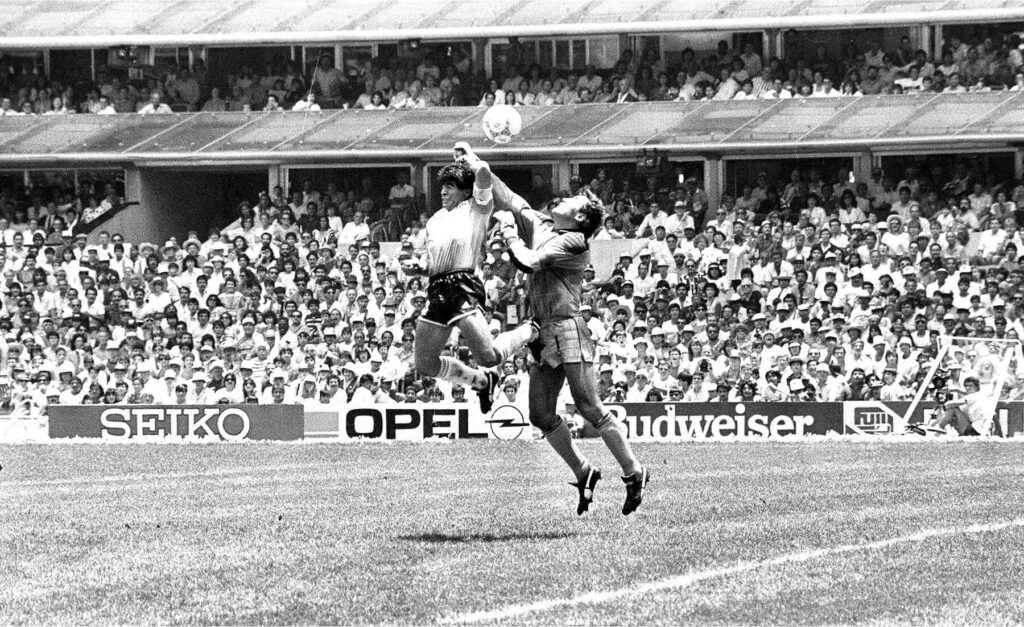
Why It Was Controversial
- Clear breach of the rules: It was an intentional handball.
- No VAR in 1986: Without video replays, referees relied only on what they saw.
- Sportsmanship in question: Maradona’s choice not to admit the foul sparked global debate.
For some, the goal was an act of cunning and street-smart football, common in South American football culture. For others, it was outright cheating.
The “Goal of the Century”
Just four minutes after the controversial opener, Maradona gave the world a reason to admire him. Picking up the ball in his own half, he dribbled 60 yards in just 10 seconds, beating four England players – Peter Beardsley, Peter Reid, Terry Butcher (twice) and Terry Fenwick. – before feinting past Goalie Peter Shilton and scoring.
Argentine commentator Víctor Hugo Morales famously shouted, “What planet did you come from?” during his commentary of the goal, and it captured the world’s awe.
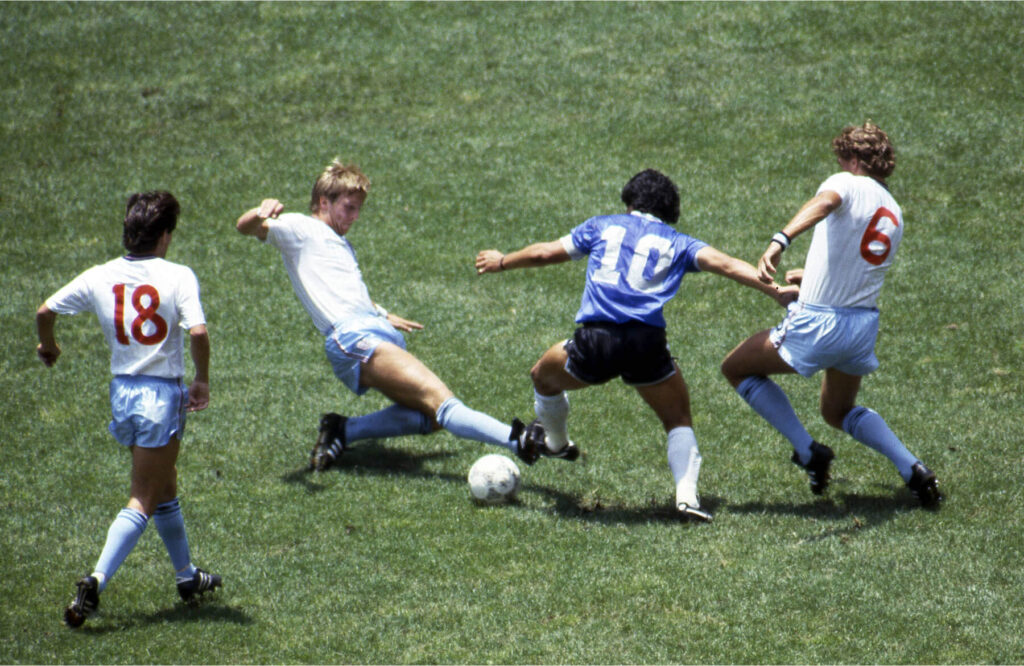
Why It’s Legendary
- Skill level: The goal showcased balance, control, speed, vision, and courage.
- Pressure situation: He scored it in a high-stakes quarter-final.
- Impact: It gave Argentina a 2-0 lead and became an instant classic.
In 2002, FIFA held a global fan vote, and this goal was officially named the “Goal of the Century.”
Tension Between Genius and Controversy
The contrast between the two goals – one illegal, one extraordinary – reflects the complex legacy of Diego Maradona. In one match, he was both a rule-breaker and a footballing artist. This duality created a polarizing image of him in the world of sport.
How Fans Reacted
- Argentina: Maradona became a national hero. Many saw both goals as symbols of poetic justice after the Falklands War.
- England: He was seen as a villain who robbed England of a fair chance to win.
- Neutral fans: Mixed feelings – amazed by his brilliance, troubled by the dishonesty.
Philosophical Divide
- Should the end justify the means? Maradona’s first goal was illegal, but it helped Argentina win.
- Is genius allowed flaws? Many artists and athletes are remembered not for perfection but for impact.
Maradona himself was unapologetic. He embraced both sides of his performance, saying, “It was the hand of God,” with a smile, and often reminding fans of the second goal’s beauty.
Argentina’s Path to Glory
Argentina won the match 2-1, with Gary Lineker scoring a late goal for England. Maradona had created a moment in football that would never be forgotten. Argentina went on to defeat Belgium in the semi-final, and then beat West Germany 3-2 in a dramatic final to become World Champions.
Maradona was named Player of the Tournament, having scored 5 goals and made 5 assists. His performance in 1986 is still considered one of the greatest individual campaigns in World Cup history.
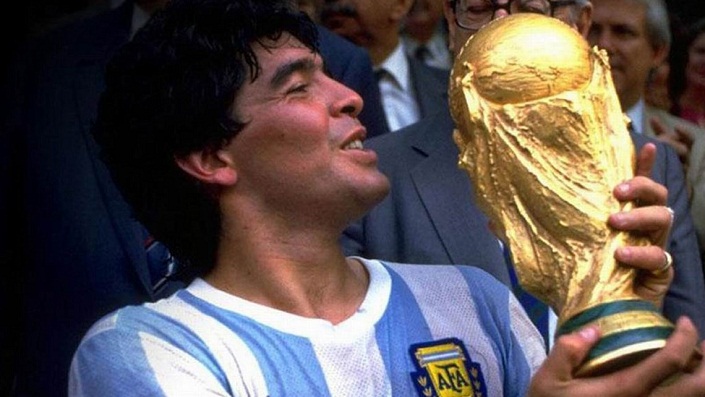
Lasting Impact on Football Lore
Cultural Influence
- “Hand of God” became a universal phrase for controversial moments in sports and beyond.
- The goal has been referenced in songs, documentaries, and films.
- Murals and statues in Argentina often depict both moments side by side, celebrating the man in full.
Influence on Officiating
- The match was one of several that led FIFA to consider video technology and goal-line referees.
- In 2018, Video Assistant Referee (VAR) was introduced in the World Cup to reduce such incidents.
Legacy of Diego Maradona
Maradona passed away in 2020, but the 1986 quarter-final continues to define his legacy. His two goals in that game represent the paradox of human nature – flawed yet brilliant, imperfect yet unforgettable.
For football lovers, the match is not just history; it’s a lens through which they see creativity, rules, emotion, and controversy. It’s why football is called “the beautiful game”. Because beauty, like Maradona’s legacy, is rarely perfect.
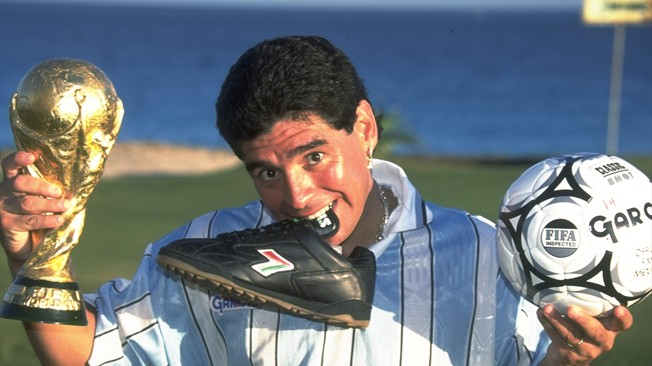
A Match That Defined a Legend
The 1986 World Cup quarter-final between Argentina and England shall eternally remain the one where Diego Maradona became a legend. Not really for what he did with his feet but for how in essence, he changed the very perception of football of the audience.
The “Hand of God” and the “Goal of the Century” are not merely moments lost to history – rather, they belong to the bigger story where brilliance and blemishes coexist, where a footballer transcended into a myth, and where one game showed us all how much power, drama, and complexity are nestled inside the sport we cherish.
